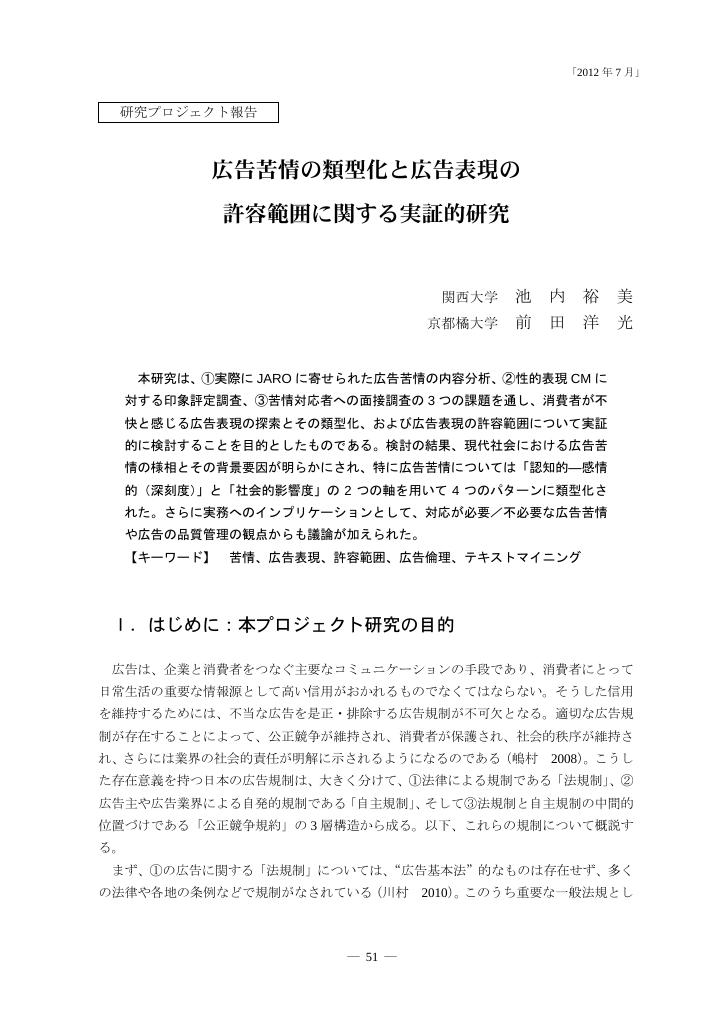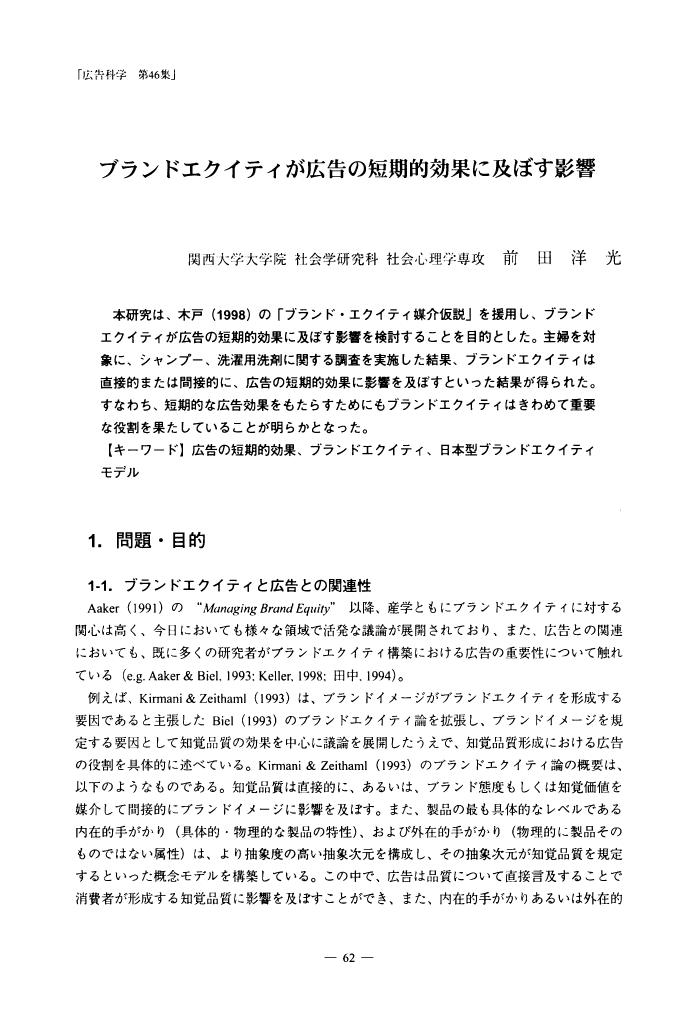1528 0 0 0 OA 広告苦情の類型化と広告表現の許容範囲に関する実証的研究
- 著者
- 池内 裕美 前田 洋光
- 出版者
- 日本広告学会
- 雑誌
- 広告科学 (ISSN:13436597)
- 巻号頁・発行日
- vol.55.56, pp.51-70, 2012 (Released:2017-10-25)
4 0 0 0 消費者の認知に基づいたブランドエクイティの構造分析
- 著者
- 前田 洋光
- 出版者
- 日本社会心理学会
- 雑誌
- 社会心理学研究 (ISSN:09161503)
- 巻号頁・発行日
- vol.24, no.1, pp.58-67, 2008
Currently, brand equity has various definitions and forms. In this study, brand equity is defined, from the cognitive aspects of consumers, as "a set of brand values perceived by consumers based on past brand-marketing conducted by a corporation." The purpose of this study is to examine the structural analysis of brand equity. The author conducted a survey of three brand categories (tea, shampoo, and PCs) on 274 undergraduates. The main findings were as follows: (a) Brand equity consists of primary values (qualitative values) and secondary values (incremental values beyond product quality), (b) The value that consumers attribute to a corporation (corporate value) affects brand equity directly or indirectly, (c) Brand equity causes "consumer-brand relation-ships." (d) These "relationships" influence secondary value. Based on these findings, the validity of a circulated brand equity model is discussed.
- 著者
- 前田 洋光 近都 智美 佐々木 智崇 吉田 夏希 北林 弘行 永野 光朗
- 出版者
- 京都橘大学研究紀要編集委員会
- 雑誌
- 京都橘大学研究紀要 = Memoirs of Kyoto Tachibana University (ISSN:18830307)
- 巻号頁・発行日
- no.43, pp.203-218, 2017-02-15
1 0 0 0 OA ブランドエクイティが広告の短期的効果に及ぼす影響
- 著者
- 前田 洋光
- 出版者
- 日本広告学会
- 雑誌
- 広告科学 (ISSN:13436597)
- 巻号頁・発行日
- vol.46, pp.62-75, 2005 (Released:2017-10-25)
1 0 0 0 エコバッグに対する態度が環境配慮行動に及ぼす影響
- 著者
- 前田 洋光
- 出版者
- 産業・組織心理学会
- 雑誌
- 産業・組織心理学研究 (ISSN:09170391)
- 巻号頁・発行日
- vol.31, no.1, pp.69-80, 2017-09

